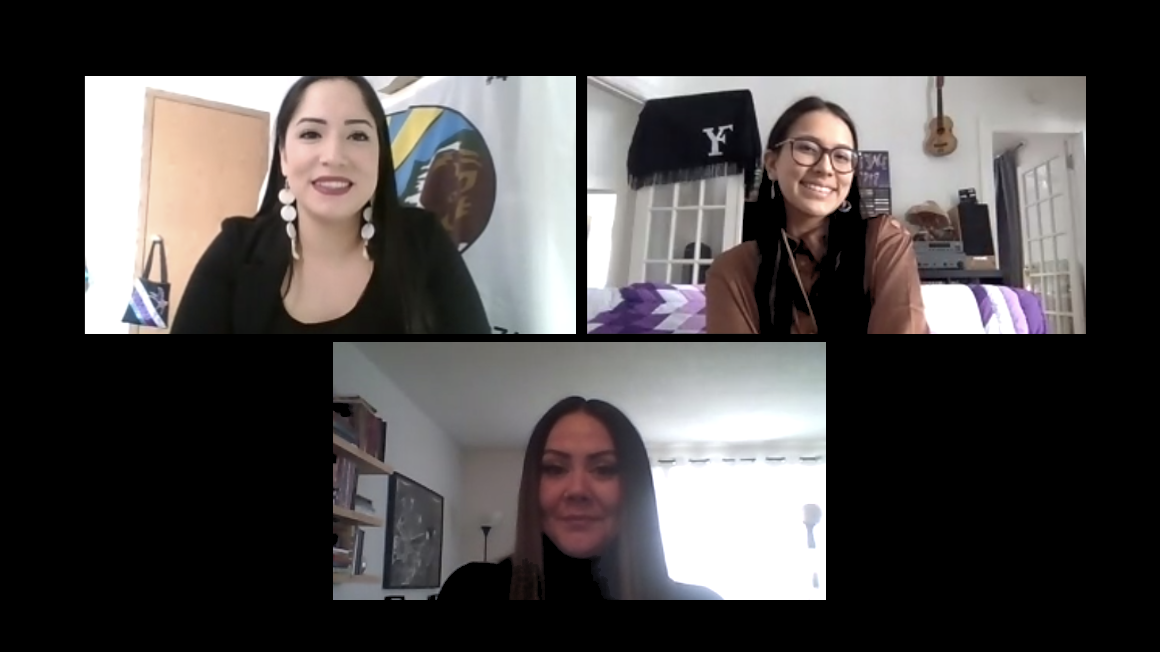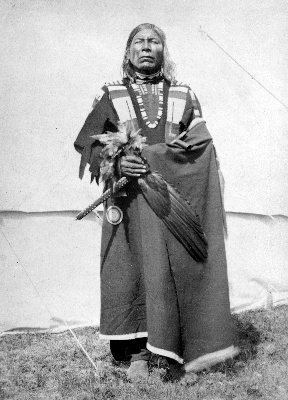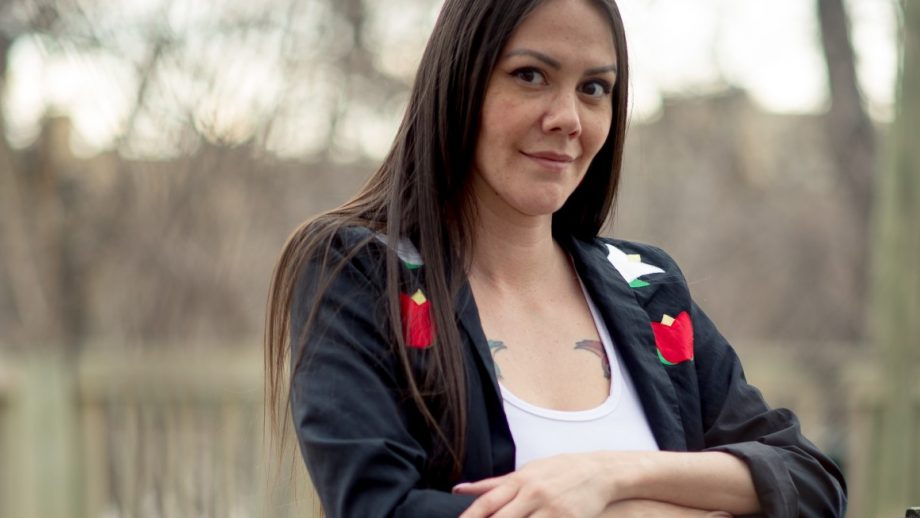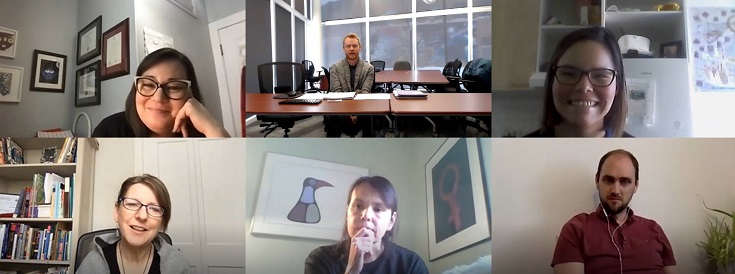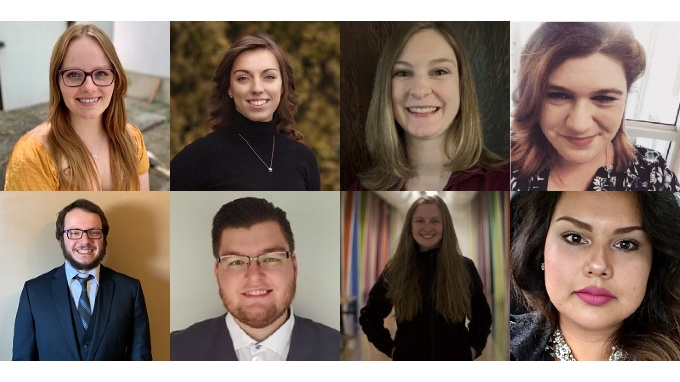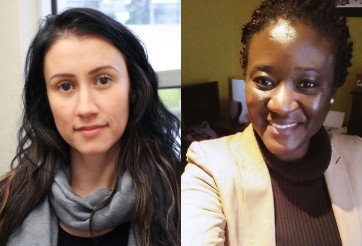As for many over the course of the past two-plus pandemic-ridden years, “pivot” has been the watchword for Tammy Wolfe.
Pivoting has meant adjusting research methods, discovering ways to complete online what would have previously done in person, and determining how to achieve academically in an unprecedented environment. But Wolfe adeptly maneuvering through pandemic-related measures has paid dividends: Wolfe was one of three Master of Arts in Indigenous Governance students, alongside Maureen Twovoice and Charlene Moore, who defended their thesis and practicum remotely.
It was a very powerful and emotional week recently for the Master of Arts in Indigenous Governance program as we witnessed three amazing Indigenous students successfully defend their theses and practicum exam with distinction
Mark Ruml, MAIG Graduate Program Chair
“It was a very powerful and emotional week recently for the Master of Arts in Indigenous Governance (MAIG) program as we witnessed three amazing Indigenous students successfully defend their theses and practicum exam with distinction,” said Mark Ruml, MAIG Graduate Program Chair.
As Dr. Jerry Fontaine noted, “The MAIG students did cutting-edge stuff. Their work created a buzz in the Indigenous community. The Community were aware of what the students were doing and representatives from Community organizations (Assembly of Manitoba Chiefs and Southern Chiefs Organization, for example) and Indigenous people from across the country were in the Zoom audiences; they were happy with what was shared.”
Home comfort
Despite the unconventionality of a Zoom defense, Wolfe said it provided an additional layer of comfort.
Her thesis, Unheard Voices: Healing Stories of Reclamation and Rebuilding for Families of Missing and Murdered Indigenous Women, Girls and Two-Spirit People Who Have Not Been Involved in the National Inquiry, required her to collect stories from those who, like her, have been impacted by the deaths and disappearances of MMIWG2S. Many of the stories were collected “on the land, picking medicines, picking berries, and relaying teachings back and forth to each other,” and presenting her thesis was an emotional experience.
“Preparing for my thesis defense remotely, I feel like I didn’t mind it,” said Wolfe, who plans to pursue her PhD. “It would have been nice to be around human beings – hugs and handshakes and physically being in a room – but I cried in my thesis defense. The work that I completed is really so much more than a master’s to me. It’s more than just the degree.”
Succeeding with support
Like Wolfe, Twovoice understands the necessity of adapting. It was only after gaining approval for her thesis proposal that COVID-19 struck, forcing Twovoice to alter her research from primary sources to secondary sources, stories, and ceremony teachings shared over the past five years.
The resulting thesis, Chief Paskwa’s Pictograph: Revisiting Treaty Four Through an Anishinaabe Philosophy, is not only a work of which Twovoice, who is from and lives in Waywayseecapo First Nation, is immensely proud, but one she can bring back to her community where she works as a community connector and Indigenous facilitator.
Arriving at this point and completing her master’s, said Twovoice, was made possible by encouragement she received throughout the process. Once considering departing the program, a connection with her eventual thesis supervisor, Dr. Jerry Fontaine, propelled her.
“That support from the advisor is really, really good,” said Twovoice. “It wasn’t just Jerry. It was my close advisor, who was Darren Courchene. He was a previous instructor at The University of Winnipeg for me. I went back and forth, so I had both support systems. I also had professors from other classes throughout the years, they were reading my stuff, too, so that was very helpful that I was able to reach out to them even though they were so busy.”
Combining passions
Dr. Fontaine was likewise influential in Moore’s experience. Having previously earned an undergraduate degree in film and Indigenous Studies from UWinnipeg, Moore sought to further explore the idea of narrative sovereignty and “how Indigenous stories have largely been told from a European perspective.” She found a way to meld her passion for film with her work in MAIG.
“It seemed like it was going to be impossible to merge these two things together,” Moore said, “but Jerry really saw value in what I wanted to do and supported me, advised me, and guided me along the way to make sure I was doing well. He was really awesome, and he’s also very focused on decolonizing and doing things in a different way. That was really important and crucial to me graduating.”
Though her practicum with the Assembly of Manitoba Chiefs was ultimately cut short due to the pandemic, Moore was encouraged to take the materials she had been able to accumulate to complete her project. Now, after her successful defense, Moore is working on a documentary about her family and has recently returned from Rome, where she documented the Indigenous delegation’s meeting with the Pope regarding Residential Schools.
“MAIG students Tammy, Charlene, and Maureen have demonstrated exemplary courage, focus, and strength by completing their final leg of the degree by undertaking community-based research on very important topics of Indigenous Governance,” said Indigenous Studies Chair Shailesh Shukla. “Their dedication to study while caring for their families in most challenging times is truly inspiring for many young Indigenous and non-Indigenous women to pursue similar dreams while balancing personal and professional lives.”

